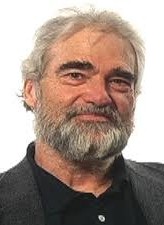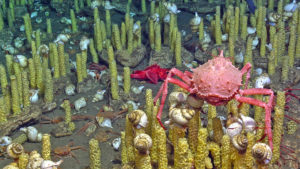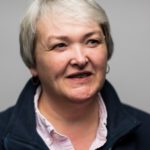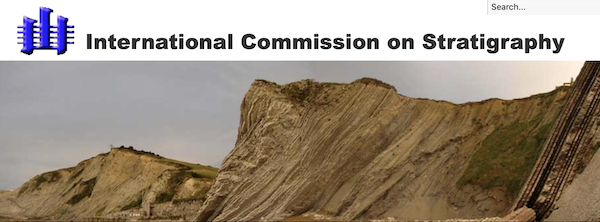If you’re into stratigraphy, time, and correlation of rock units, take a look at these sites:
Category: National geology
12-7-2019 Peter Ward — The Coming Great Simplification?
We are living in a time of unprecedented and rapid technological, economic, social, and environmental change. I will argue that, in spite of what seems to be ever greater technological complexity, the largest scale natural “operations” of Earth are actually undergoing an unnoticed simplification, one that is already affecting geological landscapes, biodiversity, global economy, and human population. I will make predictions about specific “simplifications” that will accrue from sea-level rise, climate instability, diminishing petroleum output, increasing population, and dwindling global food supply. Whether these simplifications happen fast enough to allay an actual mass extinction (of our species) rather than “just” the current and expanding “mass depletion” over the next century, remains to be observed.
 Dr. Peter Ward is a paleontologist and astrobiologist at the University of Washington and a world-renowned authority on mass extinctions, climate change, evolution, and astrobiology. His research examines the history of life on Earth over billions of years, focusing in particular on mass extinction events. That work gives him unique ‘deep time’ perspectives on the future of life on this planet, as well as the possibility of life elsewhere in the universe. Dr. Ward has appeared on NOVA and Ted Talks and written over a dozen popular science books including “Rivers in Time: the Search for Clues to Earth’s Mass Extinctions” and “The Flooded Earth: Our Future In a World Without Ice Caps”.
Dr. Peter Ward is a paleontologist and astrobiologist at the University of Washington and a world-renowned authority on mass extinctions, climate change, evolution, and astrobiology. His research examines the history of life on Earth over billions of years, focusing in particular on mass extinction events. That work gives him unique ‘deep time’ perspectives on the future of life on this planet, as well as the possibility of life elsewhere in the universe. Dr. Ward has appeared on NOVA and Ted Talks and written over a dozen popular science books including “Rivers in Time: the Search for Clues to Earth’s Mass Extinctions” and “The Flooded Earth: Our Future In a World Without Ice Caps”.
01-19-2019 Deborah Kelly: Seamounts on Cascadia’s margin

About the lecture
Earthquakes, Volcanoes, and Exotic Deep Sea Life Off Our Coast
In this talk you’ll learn all about deep-sea habitats off the coast of Washington and Oregon, which are some of the most dynamic environments on Earth. Using high-definition video from deep-diving remotely operated vehicles, we will “visit” the Cascadia Margin where methane-rich fluids rise from hundreds of vents on the seafloor, sometimes explosively.
Debbie Kelley looks at how submarine volcanoes support life in the absence of sunlight. She has dived in the submersible Alvin more than 50 times, reaching depths of 4000 m beneath the ocean’s surface, and routinely uses robotic vehicles to study some of the most extreme environments on Earth – submarine underwater hot springs. Her fieldwork takes her to volcanoes and hot springs off the Washington and Oregon coasts, the novel Lost City hydrothermal field on the Mid-Atlantic Ridge, and to the island of Cyprus.
NEW JAN. 30, 2019. Dr. Kelley’s pertinent publications, videos and references can be found at the following urls:
https://interactiveoceans.washington.edu/ This has imagery associated with each expedition, but also can be reached through resources.
https://interactiveoceans.washington.edu/story/Biology_at_Axial_Seamount
https://interactiveoceans.washington.edu/story/Coastal_Biology
There is also an ~ 30-minute fun video that was done called “Down to the Volcano,” which is a general audience film https://www.youtube.com/watch?v=PIUKej4_XMU highlighting some of the points I raised during the talk.
 About the Speaker
About the Speaker
Dr. Debbie Kelley is a marine geologist with the University of Washington and Associate Director for Science for the cabled component of the National Science Foundation’s Ocean Observatories Initiative. This project utilizes high-power and bandwidth, submarine fiber-optic cables to bring the Internet into the Pacific Ocean and onto the seafloor providing high-quality, real-time data from more than 100 instruments (e.g., high definition video, seismicity, ocean acidity, oxygen) to a global audience.

 Home site for the
Home site for the Download the
Download the